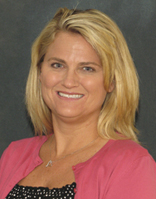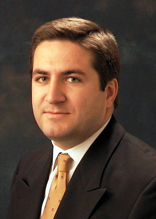By Natalie Posgate and Mark Curriden
Patent lawyers in North Texas need to take Amanda Seward out for a free dinner.

“Wouldn’t it be cool for Dallas to get this?” Seward told her boss, T&K IP law partner Max Ciccarelli.
The next day, Ciccarelli and Seward discussed the idea with the Dallas Bar Association’s IP Law Section leadership. The decision was made immediately to submit a petition.
On Monday, the hard work paid off, as the USPTO officially awarded Dallas one of the new satellite patent offices.

The new regional offices are the result of the Leahy-Smith America Invents Act of 2011, sponsored by San Antonio Rep. Lamar Smith, in an effort to modernize the U.S. patent system.
“We were up against Austin and Houston, who put in very strong bids,” says Ciccarelli. “We are very excited and pleasantly surprised. This enforces the fact that North Texas is a great place for technology companies.”
David McCombs, a partner in the IP practice at Haynes and Boone, says that Texas is “a logical choice” the new satellite office.
“For more than five years, Texas inventors have ranked second behind Californians in the number of patents granted,” says McCombs, who also played an active role in lobbying the USPTO. “In 2010, 7,545 patents were awarded to Texans – from our businesses and corporations to our university professors, start-ups and garage tinkerers.
McCombs points out that Texas has a “wealth of qualified technologists that would make good patent examiners across a wide spectrum of industries that include petroleum and chemical engineering, biotechnology, semiconductors, computer hardware and software.”
In 2010, the state’s top 10 patent grantees were IBM; Texas Instruments Incorporated; Freescale Semiconductor; Hewlett-Packard; Dell; Baker Hughes; Schlumberger Technology; Halliburton; ExxonMobil; and the University of Texas, according to McCombs.
Intellectual property lawyers in Texas say that the new satellite office will provide economic benefits to Dallas and the state, as well as ease the process of examining and issuing patents.
Steven Spears, the partner-in-charge of McDermott Will & Emery’s Houston office whose practice focuses on patent litigation, says that the new office will offer more job opportunities for people with advanced technical degrees in Texas and will cause increased commerce for the Dallas area when patent practitioners from across the country visit Dallas for business.
Spears believes the Dallas satellite office could attract other innovative industries to establish their roots in Texas and the Dallas area.
“As a tacit recognition of Dallas and Texas as a technology hub, the office could also serve as a magnet for high tech industries looking for a home base of operations,” he says.
According to a statement by the USPTO, it chose Dallas as one of the satellite offices because it “provides the USPTO with a southern, central time zone hub from which to operate” and “the region is exceedingly rich in engineering talent, patent applications, and patent grants.”
The U.S. Commerce Department issued a report finding that IP-intensive industries are the source – directly or indirectly – of 40 million jobs that contributed $5.06 trillion to the U.S. economy in 2010. Expanding the USPTO to cities beyond its headquarters in Alexandria, Va. will help job creation in the private sector expand throughout the nation.
Spears says that a major drawback to the USPTO having only one office in the past is that it has substantially narrowed the pool of applications for patent examiner positions because of the assumption that the applicants would spend some time physically present in the Alexandria patent office.
The addition of the Dallas and other satellite offices will increase the number of patent examiners, thus facilitating patent examination, Spears says.
“Having more patent examinations will help reduce the backlog at the patent office in the time it takes to have a patent examined and issued, which has been a significant problem,” Spears says.
PLEASE NOTE: Content of The Texas Lawbook is controlled and protected by specific licensing agreements with our subscribers and under federal copyright laws. Any distribution of this content without the consent of The Texas Lawbook is prohibited.
